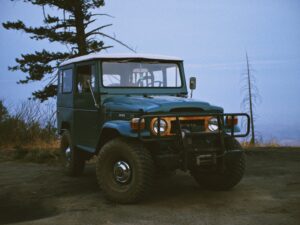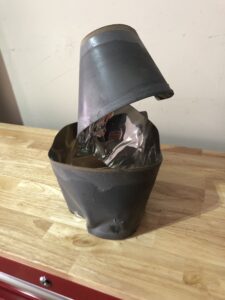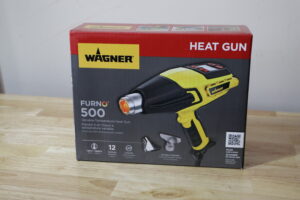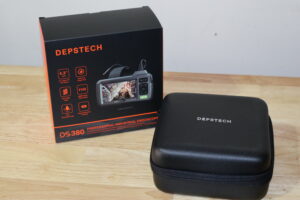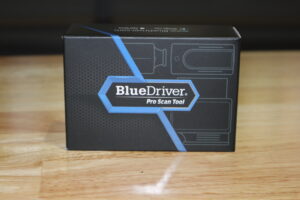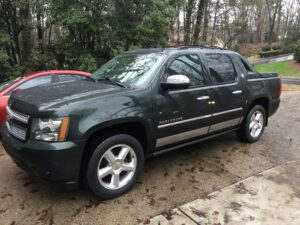What Makes a Good Off Road Vehicle?
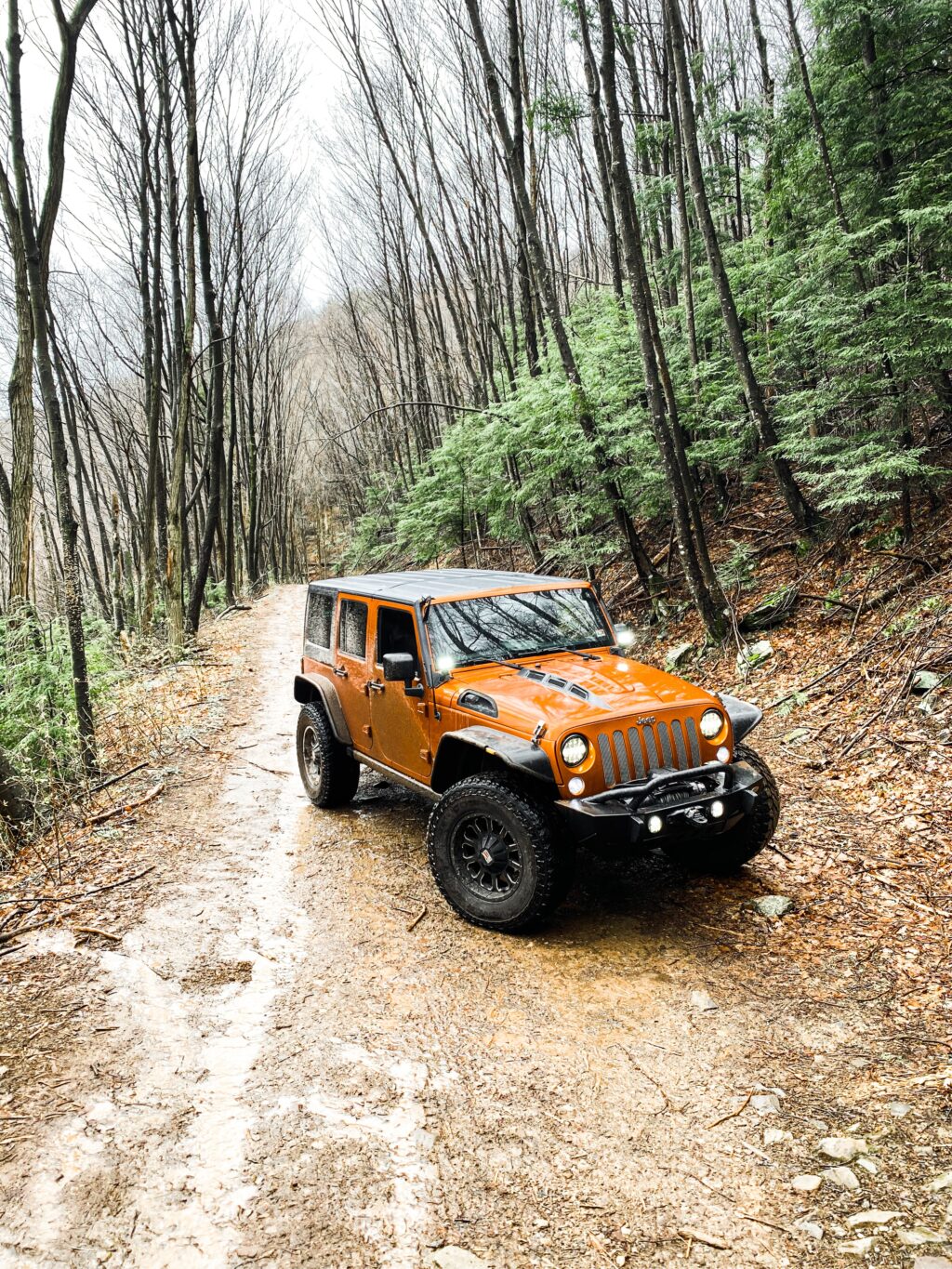
Photo Credit: Christian Lucas - Unsplash
You’ve probably heard lots of people say you can off road in most any vehicle, and that is absolutely true. If you just want to see what it’s all about, there are lots of forest service roads that are basically just big dirt roads and as long as they aren’t wet, you won’t even need four wheel drive.
But if you want to fully explore the world of off roading, then you are going to need a proper vehicle. This article will cover the major considerations when choosing a vehicle. If you want to just want to see the list of specific vehicles you could buy, jump to the bottom of the post.
Four Wheel Drive or All Wheel Drive?
Anything more than a well kept dirt road is going to require all four of your wheels to receive power from the engine. This power delivery can come in one of two ways: four wheel drive and all wheel drive.
Off roaders generally prefer four wheel drive to all wheel drive, though as AWD systems have become more robust and four wheel drive systems have become more sophisticated, they have become more alike than they once were.
To generalize, AWD systems are more complicated, usually involving a lot of computers that are sensing what the wheels are facing and providing power to the wheels as needed. AWD systems are great for making a car go faster through turns and are also great at navigating a car through snow and mud. Not surprisingly, German car makers mastered AWD. Why? Because they want their cars to go fast on the autobahn and then get them to the Alpine ski slopes in winter.
Four wheel drive, on the other hand, is generally associated with trucks and rigs that are designed to go off pavement. It is generally attached to a vehicle with higher ground clearance and a more robust suspension than an AWD vehicle. The mechanism for getting the power to the wheels is generally simpler and the driver typically has more control over the drive system, being able to choose between high and low range four wheel drive and in many vehicles, two wheel drive.
To be sure, you can get a long way off road in a modern SUV with AWD. But if you want to climb every last obstacle in Moab, you’ll want four wheel drive. You need the low range gearing and you need lockers. And while some modern AWD drive systems can replicate those things, the advantages of a true four wheel drive system are still there.
Solid Axle or Independent Front Suspension?
The easy answer here is solid axle. Solid axle vehicles provide maximum wheel articulation and are easier to fit with huge tires. The problem is that outside of the Jeep Wrangler, very few vehicles can be bought with solid front axles anymore because other than the very narrow use of climbing a very large rock, an independent front suspension is better in every way.
So I wouldn’t worry too much about this one. If you want maximum rock crawling capability, then you’ll want a solid front axle. Just know you are making a huge compromise in terms of ride quality and comfort.
Aftermarket Support
This one is big. Jeep Wranglers come from the factory more or less ready to hit the trail. Pretty much nothing else does unless you are buying a special off road version of something. And even then, it probably still needs some help. Even with a Jeep, there are going to be modifications you need to make to get the most out of it. To do that, you’re going to need parts.
Lift kits, longer travel suspension kits, rock sliders, undercarriage armor, and off road bumpers are the mainstays of any good off road build. If you have a lot of welding skill or a lot of money, you can have these things custom made for any vehicle you want. But assuming that isn’t you, you’re going to want to be able to order these things online and bolt them on or have your local off road shop bolt them on for you.
So before you buy an off road vehicle, spend a few minutes online and just see what people are selling to help you build out that vehicle and make sure you are comfortable with what you can get and what it will cost.
In the U.S., Jeeps, Toyotas, and full size trucks enjoy the most aftermarket support. That isn’t to say you can’t find what you need for other vehicles, but these are the easiest.
How Big Should My Off Road Vehicle Be?
In the U.S., we like big. Huge trucks with huge lifts create imposing vehicles that dominate the road. But are these things practical off road? It depends a lot on where you live.
To be clear, there are no advantages to big when you are off roading. All other things being equal, a shorter wheelbase is better. But how significant the disadvantage to the big truck is depends on where you are going.
In the southeastern U.S. where I live, our trails are all cut through densely packed forests. In this environment, full size trucks are at a significant disadvantage off road. Does that stop anyone from using them? Absolutely not. But as a former owner of a Ford F150 with the FX4 package, I can tell you when you are navigating narrow trails in the woods, bigger is not better.
Out west, however, the story might be different. I see a lot of people off roading in full size trucks in places like Arizona, Utah, and Southern California where the trails are a lot more open and they aren’t picking their way around trees. If you have wide open spaces, the main disadvantage to a full size truck is the risk of being high centered on an obstacle. But that’s no problem if you just lift it enough!
So smaller is better. There is a reason Jeep Wranglers have short wheel bases. But size matters for hauling people and stuff, so size your vehicle according to your needs and don’t worry too much about it.
How Important is Reliability?
There is a difference between off roading and overlanding. If you want to go overlanding, reliability is massively important. In fact, it might be the most important consideration of all as a vehicle that can get you deep into remote areas but can’t get you back out is unacceptable. That’s why overlanding conversations begin and end with the Toyota Land Cruiser.
Off roading, on the other hand, is usually more a of weekend activity and it is typically going to take place on a well run track that lots of other people will be enjoying as well so you won’t be alone. Popular tracks will have recovery companies nearby that are used to pulling vehicles off the trail and since you ran up to the trail on Saturday morning, you probably aren’t too far from town anyway. Reliability is always important, of course, but much less so in this situation than in the overlanding one where your vehicle is the foundation of your survival strategy.
Honestly, if what you really enjoy is off roading rather than overlanding, I wouldn’t worry too much about reliability. Find a vehicle you enjoy, get it sorted out to enjoy a weekend of fun, and don’t worry too much about whether it will reach 400,000 miles. Fixing up your vehicle after a weekend of bombing around on trails is part of the hobby anyway.
That said, if you really hate it when your car is down and you don’t want to mess with fixing it, your shopping list just got shorter! Here is the list: Toyota and Lexus.
What Off Road Vehicle Should You Buy?
The off road world often divides by brand, with the primary brand loyalties running to Jeep or Toyota. While the fanboying can get a little ridiculous, there are some advantages to joining one of these tribes. If you do, you’ll find a lot of fellow enthusiasts of your vehicle which makes troubleshooting, getting opinions on gear, and even meeting up with people to travel with much easier. But first and foremost, you should get a vehicle that works for what you want to do.
You should look for four wheel drive and good ground clearance. If you can add larger tires to get more ground clearance, that’s a plus.
Get a vehicle that is the size you need and has the reliability that you want.
Make sure whatever you buy has enough aftermarket support to build the rig out the way you want.
And if all of that is too vague to be helpful, I’ve put together a list to get you started (U.S. vehicles). Just make sure you are looking at four wheel drive versions of them as some of them also come in two wheel drive.
Top Off Road Vehicles
Jeep Wrangler – The best pure off roader
Jeep Cherokee
Jeep Grand Cherokee
Toyota 4Runner – The best compromise between off roading and overlanding
Toyota FJ Cruiser
Toyota Land Cruiser – The best overlander
Toyota Tacoma
Lexus GX
Lexus LX
Nissan Xterra
Ford Bronco (the new ones)
The Best Full Size Trucks for Off Road
Ford F150 (off road set ups like Raptor or FX4)
Ram (off road set ups like TRX and Back Country)
Chevrolet Silverado (off road set ups like Z71 and ZR2)
Toyota Tundra (off road set ups like TRD)
SUVs You Can Make Work Off Road
Chevy Tahoe / GMC Yukon
Toyota Sequoia
Porsche Cayenne (1st generation)
The Roulette Wheel of Reliability
Any vehicle with the word “Rover” in the name.

